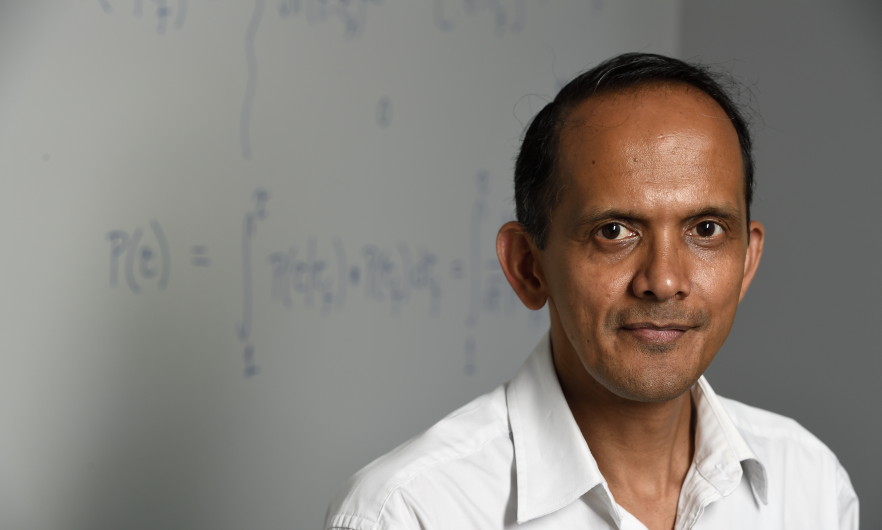Renowned environmental and earth systems researcher Harihar Rajaram dies at 59
Remembered as a dedicated mentor, Rajaram was known for his innovative use of mathematical models to understand and predict complex environmental phenomena

Prominent environmental and earth systems researcher and world-renowned hydrologist Harihar Rajaram, a professor in the Department of Environmental Health and Engineering, died on July 4 at his home in Baltimore. He was 59. Rajaram served as the department's deputy chair and director of graduate studies.
Rajaram was known for his innovative use of mathematical models to understand and predict complex environmental phenomena. He was a leading expert in hydrology and his research spanned a wide range of areas, from the environmental impacts of hydraulic fracturing to the biogeochemical impacts of climate warming on glaciers and ice sheets. Rajaram had a highly collaborative approach to science and an ability to work across disciplines to develop new areas of research while pushing the boundaries of engineering to develop innovative solutions to environmental challenges.
In a message to the Whiting School community, Dean Ed Schlesinger and Marsha Wills-Karp, chair of the Department of Environmental Health and Engineering, wrote, "It is with deep sadness and heavy hearts that we must share the tragic news of the loss of one of our colleagues. Beyond his professional achievements, Hari was known for his kindness, humility, and dedication to mentoring young scientists."
During his career, Rajaram has received numerous accolades and awards including the CAREER Award from the National Science Foundation, the College of Engineering Faculty Research Award (2016), the Clarence Eckel Prize for Faculty Excellence (2016), the Research Development Award (2005), the Department Service Award (2001); and the Outstanding Professor Award, Chi Epsilon Honor Society (2001, 2013, and 2015). He served as editor of the premier journal in fluid mechanics, Water Resources Research, from 2013 to 2017 and received the Editor's Citation for Excellence in Refereeing in 1998. Since 2019, Rajaram was also editor in chief of Geophysical Research Letters, the flagship journal of the American Geophysical Union, which is the world's largest society of earth and planetary sciences. He was recently elected as an AGU Fellow.
Rajaram joined JHU's Department of Environmental Health and Engineering in 2018. Since then, he has held many roles in the department, serving as deputy chair and co-chair of the educational programs committee. He was also a member of the faculty affairs committee, and director of WSE graduate studies, and served on the Whiting School's CUE working group. He led the department's recent ABET accreditation process and shepherded the department through the development of several new educational programs, including the unique Advanced EHS course, for which he received the school's Excellence in Teaching Award.
Rajaram's academic training began at the Indian Institute of Technology, Madras, India, where he received his Bachelor of Technology. He received his master's degree from the University of Iowa and, in 1991, his PhD in civil engineering from the Massachusetts Institute of Technology. He completed a postdoctoral fellowship at Princeton University in the Department of Civil Engineering and Operations Research and then was a professor and department chair in the Department of Civil, Environmental, and Architectural Engineering at the University of Colorado at Boulder from 1993 to 2012.
Rajaram is survived by his wife, Vijaya Subramanian, who is on the faculty of the Johns Hopkins Institute for Computational Medicine, and their son, Vinu, a graduate student at U.C. Berkeley.
